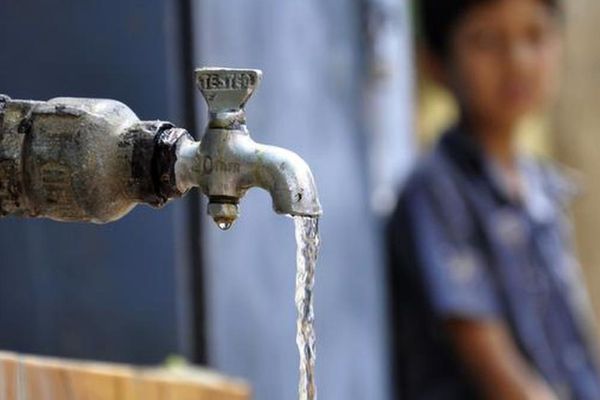To make provision of tap water supply to every rural household across the country, Government of India in partnership with States, is implementing Jal Jeevan Mission (JJM) – Har Ghar Jal since August 2019.
At the start the Mission, only 3.23 Crore (16.7%) rural households were reported to have tap water connections. So far, as reported by States/ UTs as on 06.03.2025, under Jal Jeevan Mission (JJM) – Har Ghar Jal around 12.28 Crore additional rural households have been provided with tap water connections. Thus, as on 06.03.2025, out of 19.36 Crore rural households in the country, more than 15.51 Crore (80.07%) households are reported to have tap water supply in their homes and works for the remaining 3.85 Crore households are at various stages of completion as per saturation plan of the respective State/ UT.
Department of Drinking Water & Sanitation undertakes annual assessment of the functionality of household tap water connections provided under the Mission, through an independent third-party agency, based on standard statistical sampling. During the Functionality Assessment 2022, it was found that 86% of households (HHs) had working tap connections. Out of these, 85% were getting water in adequate quantity, 80% were getting water regularly as per the schedule of water supply for their piped water supply scheme, and 87% of households were receiving water as per the prescribed water quality standards. A copy of Functionality Assessment 2022 is in public domain and can be accessed at https://jaljeevanmission.gov.in/functionality-reports.
For developing in-village water supply infrastructure, water resource management, source strengthening/ augmentation, distribution network, treatment plant, etc., unskilled, semi-skilled and skilled human resource is required in rural areas. Moreover, there has been procurement of material for the construction of water supply schemes therein generating employment at different levels throughout the country, boosting the manufacturing activities, thus, the economy and in the long run will enhance ‘ease of living’ in rural areas.
Under Jal Jeevan Mission, efforts are being made to bring improvements in the lives of rural people by providing potable tap water supply to rural households. With the prioritized implementation of the Mission across the country, positive impacts are being assessed by reputed national and international institutions/ individuals. A few of these are listed as under:
- The World Health Organization (WHO) estimated that achieving saturation under JJM will result in savings of more than 5.5 Crore hours of time every day, which is otherwise spent in collection of water for household needs, primarily for women.
- The World Health Organization (WHO) has also estimated that ensuring safely managed drinking water for all households in the country could prevent nearly 400,000 deaths caused by diarrheal diseases leading to savings of approximately 14 million Disability Adjusted Life Years (DALYs) on account of the lives so saved.
- Nobel laureate Prof. Michael Kremer has published a research paper and has concluded that the implementation of JJM with coverage for all rural households with safe water, is likely to lead to almost 30% reduction in mortality among children below the age of five years, amounting to1,36,000 lives saved annually.
- The Indian Institute of Management Bangalore, in partnership with International Labour Organisation (ILO) has estimated the employment potential of JJM. The report released by the two institutions estimates that implementation of the Jal Jeevan Mission shall result in 59.9 lakh person-years of direct and 2.2 Crore person-years of indirect employment during the capex phase of JJM. Furthermore, the operation and maintenance of the Mission is likely to generate 13.3 lakh person-years of direct employment.
Further, to ensure long term sustainability of infrastructure created, quality material and quality construction is being ensured through third party inspection before making payment. Moreover, measurement and monitoring of water supply in villages through sensor-based IoT solution, linking AADHAR of the head of household for targeted delivery subject to statutory provisions, geo-tagging of assets created, etc. are also provisioned under JJM.
Further, to bring transparency and effective monitoring, an online ‘JJM dashboard’ & mobile App has been created, which provides State/ UT, district, and village-wise progress as well as status of provision of tap water supply to rural homes.
Provisions for taking up augmentation and strengthening of local drinking water sources in convergence with other schemes viz. MGNREGS, 15th Finance Commission grants to Rural Local Bodies (RLBs)/ Panchayati Raj Institutions (PRIs), Integrated Watershed Management Programme (IWMP), State schemes, MP/ MLA-LAD funds, District Mineral Development Fund, CSR funds, community contribution, etc. have also been envisaged under the JJM.
In addition, a number of steps have been taken to plan and implement JJM in the whole country, with speed, inter alia, including joint discussions and finalization of saturation plans and annual action plans of States/ UTs, regular review of implementation, workshops/ conferences/ webinars for capacity building, training, knowledge sharing, field visits by multi-disciplinary team to provide technical support, etc. A detailed Operational Guideline for the implementation of JJM; Margdarshika for Gram Panchayats & VWSCs to provide safe drinking water in rural households and Guidelines on a special campaign to provide piped water supply in anganwadi centres, ashramshalas and schools have been shared with States/ UTs to facilitate planning and implementation of Jal Jeevan Mission. For online monitoring, JJM–Integrated Management Information System (IMIS) and JJM–Dashboard has been put in place. Provision has also been made for transparent online financial management through Public Financial Management System (PFMS).
This information was provided by THE MINISTER OF STATE FOR JAL SHAKTI, SHRI V. SOMANNA in a written reply to a question in Lok Sabha today.
***
Dhanya Sanal K
Director
(Lok Sabha US Q2517)





